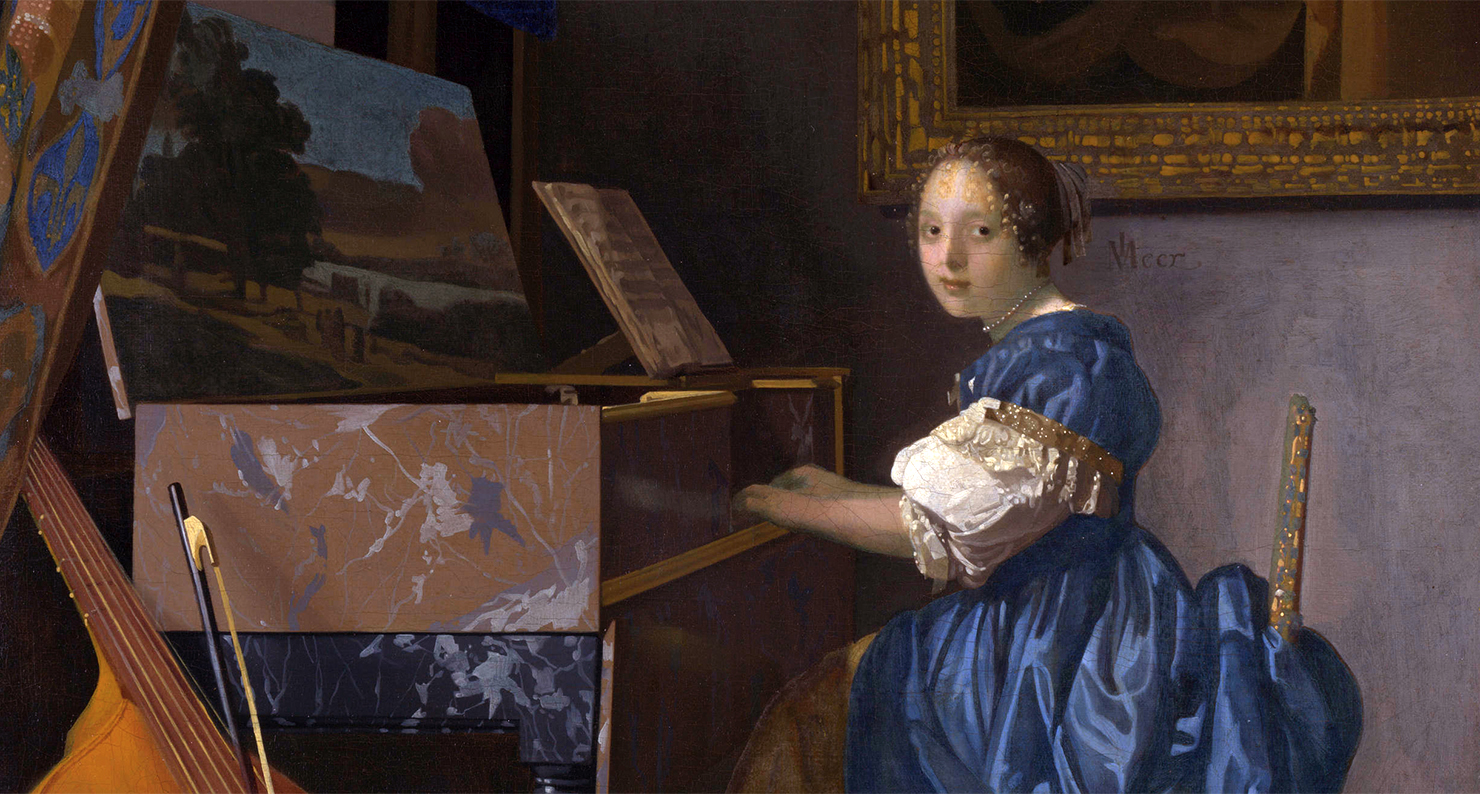
A Lady Seated at a Virginal, by Johannes Vermeer, c. 1671. National Gallery, London.
In a surprise move in anticipation of Sunday’s World Cup final between Spain and the Netherlands, Spanish manager Francisco Goya has decided to start streaky striker Joan Miró ahead of the mercurial Salvador Dalí.
“Sal’s just a bit too inconsistent to lead the attack against the Dutch Masters,” said Goya. “You never know what to expect, and he has a tendency to attempt shots and passes that have absolutely no basis in reality. Plus, I don’t know if he’ll be able to handle all of those guys names Jan.” Dalí, of course, gained notoriety during Spain’s opening World Cup match against Switzerland last month by claiming that a shot that had clearly sailed over the goal was actually on target. “I don’t know why I was the only one who saw the score,” he explained at the time. “I clearly saw the crossbar torque and bow upward in order to accommodate the ball. Definitely a good goal.”
Dalí, who slotted the game-winner goal past stodgy German goalkeeper George Grosz in the semifinal, displayed his usual petulance when informed of Goya’s decision. “All I can say is that I should be coaching this team,” he said. “I intrinsically know more about soccer than Goya has ever even forgotten.” For his part, since allowing Dalí’s goal, Grosz has been vilified by the German press for displaying a distinct lack of pride while representing his country. “I don’t know,” said teammate Emil Nolde. “I just got the sense that George was thoroughly displeased with his Germanness and wanted nothing to do with the fatherland.”
Spanish captain Pablo Picasso, who will be donning the carmine strip of La Furia Roja for the 777th time on Sunday, was diplomatic, as ever. “Dalí, well, that kid can play,” he said. “He just has to take his ego out of the game. But I think Francisco made the right decision. You know [Dutch manager Jan] Vermeer is going to pay microscopic attention to detail in his gameplan, and we can’t risk putting a loose cannon like Salvador out there.”
Picasso, who recently came under criticism in Madrid daily El Mundo for failing to consistently maintain the shape of the Spanish formation, was himself nearly struck from the Spanish roster for the final due to an ugly postgame incident after the victory over Germany. During the customary uniform exchange, Picasso was caught on camera taunting German defender Albrecht Dürer, and lip readers later claimed that Picasso had unleashed a string of expletives, followed by, “That’s for Guernica, chump. Condor Legion, my ass.” Dürer, whose wooden inflexibility had been victimized by speedy Spanish midfielder Antoni Gaudí the entire game, had to be pulled away from Picasso before the situation became violent.
“Look,” Dürer said at a press conference, “Gaudí had some amazingly deft footwork that I wasn’t prepared for. I dare say he’s ahead of his time out there.” As has been the case throughout the tournament, Rembrandt van Rijn will wear the captain’s armband for the Oranje. It will mark the 300th time he has helmed the team since taking over from the aging Jan van Eyck during the qualifying tournament. “The Spanish are tough,” he said, “especially now that Miró is going to be up front. He doesn’t play like anyone else, doesn’t subscribe to any style. He’s a total assassin.”
Rembrandt will be complemented in the Dutch midfield by the young phenom Piet Mondrian, whose technical precision on free kicks and set pieces has been the talk of the tournament. “Everything is perfect with Piet’s style,” said Goya. “He just fires crisp lasers into the net. He doesn’t even need to bend the ball.”
Related: Philosopher's Football [Monty Python]